As we journey through life, our nutritional needs change. The importance of a well-balanced diet becomes even more apparent in our golden years. In this article, I am talking about healthy cooking tips for seniors.
We will get into the world of nutrition-focused cooking tailored to seniors’ needs. I will provide insights, tips, and recipes to empower you on your journey toward healthy aging.
Cooking at home offers a fantastic opportunity for seniors to take charge of their health, relish the joy of creating nourishing meals, and savor the flavors of life.
Easy & Nutritious Cooking Tips for Seniors
Why Seniors Need Fewer Calories
As we age, our bodies undergo changes that can impact nutritional requirements. Seniors generally require fewer calories for a few reasons –
1. Slower Metabolism – As we age, the body burns fewer calories at rest, so we need less energy from food.
2. Less Physical Activity – Many seniors move less, so they burn fewer calories throughout the day.

3. Muscle Loss – Losing muscle with age means the body burns fewer calories even when resting.
4. Hormone Changes – Shifts in hormones can reduce appetite and change how the body stores energy.
5. Weaker Nutrient Absorption – The body may absorb nutrients less efficiently, reducing calorie needs.
6. Dull Taste & Smell – Food may taste or smell less appealing, lowering appetite and food intake.
What are the Must-Have Nutrients for Seniors to Stay Healthy?
This leads us to what nutrients seniors need to increase! According to Mayo Clinic, it will be nutrients like calcium, vitamin D, fiber, antioxidants, and omega-3 fatty acids.
Calcium is crucial for maintaining strong bones and teeth and can also help prevent muscle cramps and support heart health.
Vitamin D is essential for calcium absorption, making it vital for bone health and immune function. Seniors often have reduced sun exposure, which can limit the body’s ability to produce vitamin D naturally.
Fiber aids in digestion, helps regulate blood sugar levels, support heart health, and helps prevent constipation.
Antioxidants like vitamins C and E, as well as beta-carotene, help protect cells from oxidative damage, which can play a role in preventing chronic diseases and supporting overall health.
Omega-3 fatty acids, particularly EPA and DHA found in fatty fish like salmon, sardines, and trout, have anti-inflammatory properties and are beneficial for heart and brain health.
To learn more about vital nutrients, take a look at 9 Nutrients You Need More of As You Get Older from AARP.
What Foods Offer Healthy Nutrients?
Calcium is found in foods like dairy products (low-fat or non-fat milk, yogurt, cheese), fortified plant-based milk (almond, soy), leafy green vegetables (kale, broccoli), and fortified cereals.
Vitamin D is found in fatty fish (salmon, mackerel), egg yolks, fortified dairy or plant-based milk, and cod liver oil.
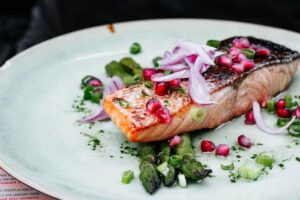
Fiber can be obtained by eating whole grains (whole wheat bread, brown rice, oats), legumes (beans, lentils), fresh fruits, and fresh vegetables.
Antioxidants can be added to the diet by eating colorful fruits and vegetables such as berries, citrus fruits, spinach, and sweet potatoes. Almonds and sunflower seeds are also rich in vitamin E, while whole grains provide additional antioxidants.
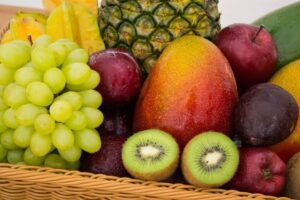
Omega-3 fatty acids are found in fatty fish like salmon, sardines, and trout. Flaxseeds, chia seeds, and walnuts are plant-based sources of alpha-linolenic acid (ALA), another type of omega-3 fatty acid.
Best Cooking Methods to Keep Nutrients in Your Food
We all know that frying foods in fat is not great for your health. But, even the elderly do not want to eat bland, boring foods! Here are some ways to cook healthy food and still create tempting dishes for the whole family.
Steaming is one of the healthiest ways to cook vegetables. Because the food doesn’t touch water, important nutrients like vitamins and minerals stay in your food. Steamed broccoli, carrots, spinach, and cauliflower keep their bright colors—and their health benefits.
Baking is another great option, especially when you use little or no oil. It helps vegetables and proteins keep their nutrients while cooking them evenly. Roasting in the oven also brings out natural sweetness, making your meals both tasty and healthy.

Grilling adds flavor without adding fat. As meats and veggies cook, extra fat drips away. Grilled vegetables get a smoky char and still hold on to their nutrients—perfect for a heart-healthy meal.
Sautéing is quick and keeps vitamins locked in. Use a small amount of olive oil, and toss in colorful veggies for a fast, delicious, and nutrient-rich meal. The short cooking time means your food stays full of goodness.
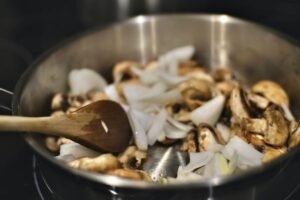
Healthy Cooking Tip: Don’t Overcook Your Vegetables
Veggies are packed full of vitamins and essential nutrients. By over cooking veggies, you destroy these valuable components and make them less than appealing for diners of any age!
Here are a few reasons not to overcook your fresh or frozen veggies.
Preserving Texture and Flavor – Overcooking vegetables can result in a mushy texture and bland flavor. Many people find that properly cooked, slightly crisp vegetables are more appealing. Retaining the natural texture also enhances the eating experience, making meals more enjoyable for seniors.
Minimizing Nutrient Loss – Overcooking vegetables, especially boiling them for extended periods, can cause a significant loss of water-soluble vitamins like vitamin C and some B vitamins. By cooking vegetables just until they are tender-crisp, you ensure that they retain their full nutritional content.
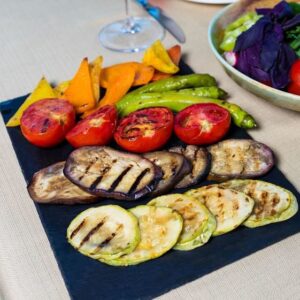
Maintaining Color and Visual Appeal – Overcooked vegetables often lose their vibrant colors, which can make a meal less visually appealing. Colorful, well-cooked vegetables are not only more nutritious but also more visually enticing, encouraging seniors to eat a wider variety of produce.
A slow cooker is a wonderful tool for safe, hands-off cooking. See my full guide on Slow Cookers for Seniors for easy recipe ideas.
Optimizing Digestibility – Overcooked vegetables may be harder for some seniors to digest, potentially causing discomfort. Cooking vegetables just until they are tender makes them easier on the digestive system.
Healthy Ingredient Swaps for Older Adults
Choose Herbs and Spices instead of Salt or Sugar

Excess salt and sugar can lead to a large number of unwanted medical conditions including Hypertension, Type 2 Diabetes, Obesity, Cardiovascular Disease, and Dental Problems.
By choosing to use herbs and spices instead of salt or sugar, you will gain immense health benefits.
Take a look at my article on Use Herbs and Spices In Place of Salt or Sugar for all the info you need!
Swap Cream for Greek Yogurt
Instead of heavy cream in sauces or soups, try using plain Greek yogurt. It adds creaminess, a touch of tang, and a big boost of protein – all without the saturated fat. Just stir it in at the end to avoid curdling.
Use Mashed Banana or Applesauce in Baking
Cut back on refined sugar by replacing it with mashed ripe banana or unsweetened applesauce. These natural sweeteners work beautifully in muffins, pancakes, or oatmeal cookies – and they add fiber and moisture too.
Try Whole Grains Instead of White Flour or Rice
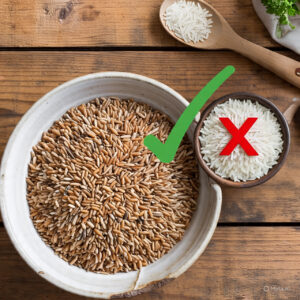
Choose whole grain bread, brown rice, or oats instead of white versions. They’re higher in fiber, help with digestion, and keep you feeling fuller longer – great for steady energy throughout the day.
Use Avocado Instead of Butter
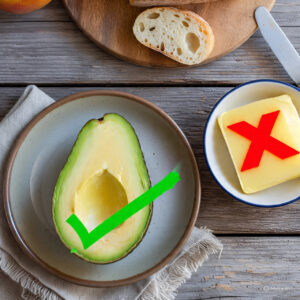
For a heart-healthier fat, try mashed avocado in place of butter on toast or even in baking. It adds creaminess and nutrients like potassium, without the cholesterol or saturated fat.
🥄Checklist For Healthy Ingredient Swaps
☐ Use herbs, garlic, or lemon juice instead of salt
☐ Swap cream with plain Greek yogurt
☐ Replace sugar with mashed banana or applesauce in baking
☐ Choose whole grain bread/pasta over white
☐ Use mashed avocado instead of butter
☐ Choose olive oil instead of margarine
☐ Pick canned goods with “no added salt” or rinse before using
What Are Smart Meal Ideas for Senior Health?
When planning meals, it’s important to focus on nutrition that supports aging bodies. Low-cholesterol meals for seniors can help protect heart health, while diabetic-friendly recipes for older adults are essential for managing blood sugar levels. Look for meals that use lean proteins, whole grains, and plenty of vegetables.
Adding high-fiber recipes for seniors – like lentil soups, oat-based breakfasts, and steamed vegetables – can aid digestion and help regulate blood sugar. For those watching their salt intake, try these simple low-sodium cooking tips: skip the salt shaker and add flavor with garlic, lemon juice, or herbs instead.
A balanced diet for seniors includes a mix of lean protein, colorful produce, healthy fats, and whole grains. Meals like grilled salmon with quinoa and steamed broccoli or veggie stir-fry with tofu and brown rice offer flavor, variety, and plenty of nutrients in every bite.
🗓️ One-Day Meal Plan for Seniors
Creating healthy meals doesn’t have to be complicated. Below is a simple, nutritious meal plan designed with older adults in mind. It’s low in sodium and cholesterol, rich in fiber, and includes diabetic-friendly recipes for older adults.
🥣 Breakfast: Oatmeal with Berries and Flaxseed
Start your day with a fiber-packed bowl of oatmeal. Cook rolled oats with water or low-fat milk and top with blueberries, banana slices, and a sprinkle of ground flaxseed. Add a dash of cinnamon for flavor—no need for sugar.
Why it works: This breakfast supports heart-healthy meals for the elderly and helps keep blood sugar steady.
🍽️ Lunch: Grilled Chicken and Avocado Wrap

Credit – allnutritious.com – chicken avocado wrap
Use a whole grain wrap and fill it with grilled chicken breast, mashed avocado, lettuce, tomato, and cucumber. Serve with a side of carrot sticks or a light salad dressed with olive oil and lemon.
Why it works: This lunch is packed with healthy fats, fiber, and lean protein—perfect for a balanced diet for seniors.
🍲 Afternoon Snack: Yogurt with Apple and Walnuts
Enjoy a small bowl of plain Greek yogurt topped with chopped apple and crushed walnuts.
Why it works: A quick snack that offers protein, calcium, and fiber—great for energy and digestion. Also a smart option for those following low-cholesterol meals for seniors.
🍛 Dinner: Baked Salmon, Quinoa & Steamed Vegetables
Bake a portion of salmon with herbs and a squeeze of lemon. Serve alongside a mix of steamed broccoli, carrots, and zucchini, plus a scoop of cooked quinoa.
Why it works: Rich in omega-3s and fiber, this dish supports both brain and heart health—ideal as part of high-fiber recipes for seniors.
🍐 Evening Snack: Pear Slices with Peanut Butter
Slice up half a pear and enjoy it with a teaspoon of natural peanut butter.
Why it works: It’s gentle, satisfying, and won’t spike blood sugar—an easy win for low-sodium cooking tips and light evening nourishment.
📝 Tip: You can mix and match components from this plan to fit personal tastes and dietary needs. Cooking for one? Batch prep and refrigerate leftovers for easy meals the next day.
Engage Seniors in the Cooking Process
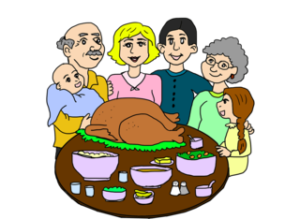
Seniors should not be banished from the kitchen! Allow your elderly parents or grandparents to get involved or even cook for themselves.
If you have safety concerns, take a look at my article on How To Make Your Kitchen Safe For The Elderly.
Frequently Asked Questions
1. What Are the Best Cooking Methods For Seniors?
Steaming, baking, and slow cooking are gentle methods that preserve nutrients and require minimal effort. They’re also safer for those with mobility or dexterity issues.
2. How Can Older Adults Cook Safely In the Kitchen?
Use appliances with auto shut-off features, keep essentials within easy reach, and avoid sharp tools or open flames when possible. Non-slip mats and proper lighting also help reduce accidents.
3. What Appliances Make Cooking Easier For Elderly People?
Slow cookers, air fryers, induction cooktops, and microwave ovens with large displays and dials are excellent for seniors. They simplify prep and reduce the need for standing too long.
Take a look at my tips on kitchen tools for aging adults and Best Kitchen Gadgets For The Elderly.
4. What Are Easy Meals Seniors Can Cook At Home?
Soups, stews, baked fish, scrambled eggs, and steamed veggies are simple, healthy, and senior-friendly. Pre-cut vegetables and ready-made sauces can also save time.
Best Kitchen Gadgets for the Elderly
Kitchen Gadgets for the Elderly Welcome to my guide on essential kitchen gadgets for the elderly. As we age, certain tasks in the kitchen can…
Improve Your Knife Skills
Improve Your Knife Skills : Tips and Techniques Have you ever considered how much time is spent in the kitchen cutting and chopping? It is…
Use Herbs and Spices Instead of Sugar and Salt
Today, I am talking about a flavorful adventure in the world of healthy cooking – How to use herbs and spices instead of sugar and…
23 Delicious Dishes for Seniors Who Live Alone
Today, I’m focusing on seniors who live alone! Yes, sadly so many elderly people do have to cope on their own. Even if they have…




